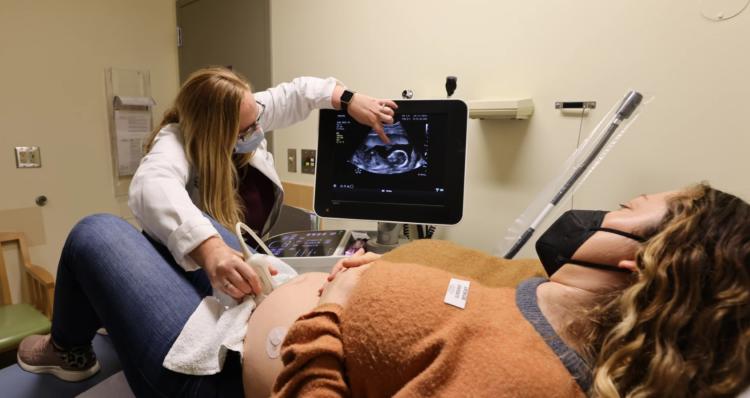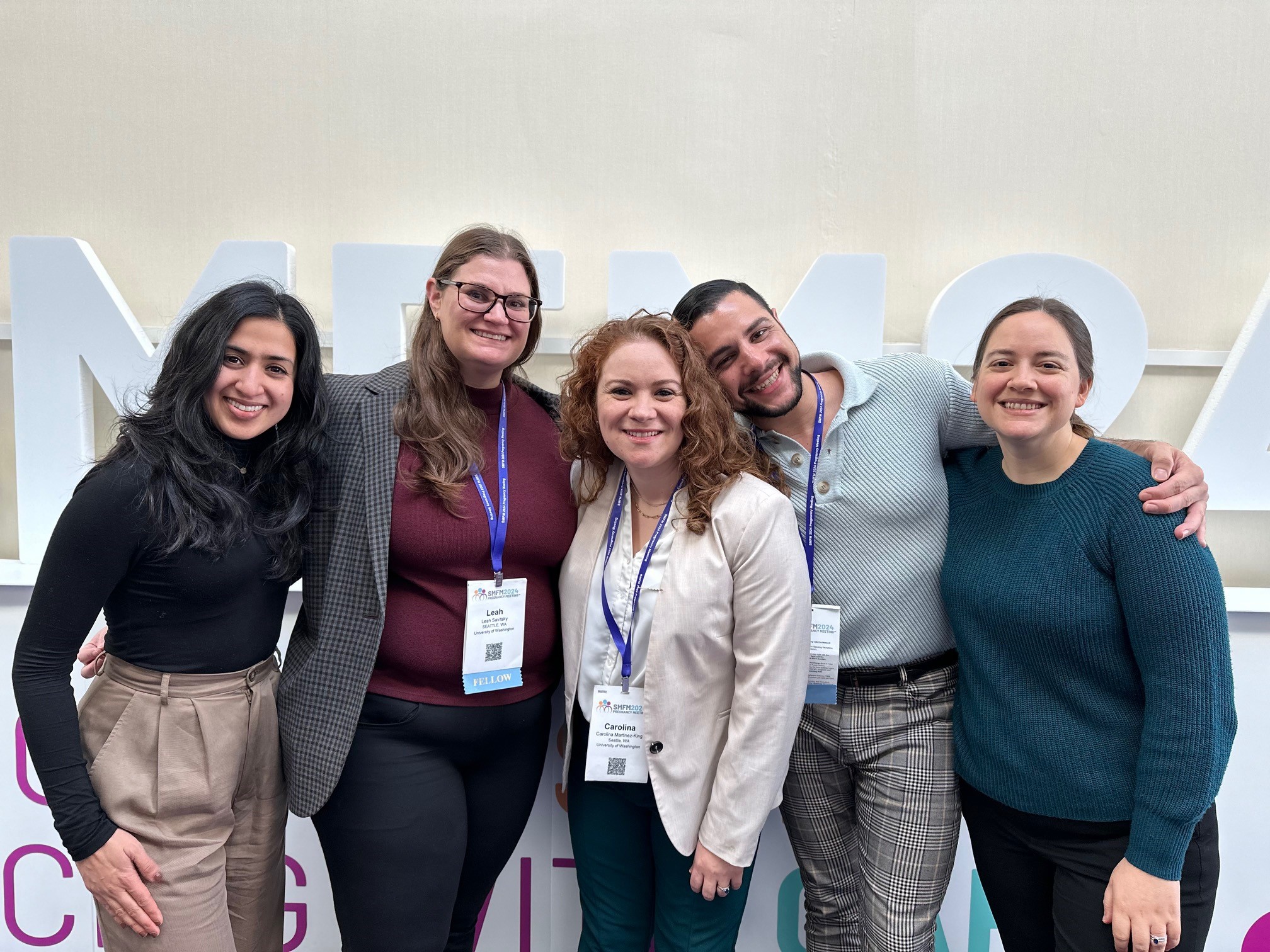The University of Washington Maternal Fetal Medicine fellowship program trains leaders in the field of MFM through strong clinical and research experiences. Fellows graduate ready to enter independent practice in a variety of career settings. During the 3-years of fellowship, we prioritize creating individualized learning plans to meet fellows’ educational and career goals.
The University of Washington Maternal Fetal Medicine fellowship program trains leaders in the field of MFM through strong clinical and research experiences. Fellows graduate ready to enter independent practice in a variety of career settings. During the 3-years of fellowship, we prioritize creating individualized learning plans to meet fellows’ educational and career goals.

Overview
 Our UW program is ACGME accredited and ABOG approved with a total of 6 fellows (2 fellows per year). UW Medicine total Labor and Delivery volume is over 6000 births per year, located across 3 clinical sites. Our Montlake Labor and Delivery unit is consistently ranked as one of the highest acuity units amongst academic L&D units in the United States. The UW Montlake campus has a Level IV NICU with 24/7 in house neonatology presence. Our fellows refer to their experience at UW as “bang for your buck.” The UW MFM referral base covers the large 5-state area of Washington, Wyoming, Alaska, Montana and Idaho (WWAMI), which provides a robust volume of complex maternal-fetal conditions. UW MFM fellows have the opportunity to experience a consultative model of practice, as well as a continuity model of care, as ~50% of clinic volume is consult only and the remaining 50% of our high-risk patients also receive their primary obstetrical care with the University of Washington Maternal Fetal Medicine group. Our fellows have their own high-risk continuity clinic that spans the entire three-year period.
Our UW program is ACGME accredited and ABOG approved with a total of 6 fellows (2 fellows per year). UW Medicine total Labor and Delivery volume is over 6000 births per year, located across 3 clinical sites. Our Montlake Labor and Delivery unit is consistently ranked as one of the highest acuity units amongst academic L&D units in the United States. The UW Montlake campus has a Level IV NICU with 24/7 in house neonatology presence. Our fellows refer to their experience at UW as “bang for your buck.” The UW MFM referral base covers the large 5-state area of Washington, Wyoming, Alaska, Montana and Idaho (WWAMI), which provides a robust volume of complex maternal-fetal conditions. UW MFM fellows have the opportunity to experience a consultative model of practice, as well as a continuity model of care, as ~50% of clinic volume is consult only and the remaining 50% of our high-risk patients also receive their primary obstetrical care with the University of Washington Maternal Fetal Medicine group. Our fellows have their own high-risk continuity clinic that spans the entire three-year period.
Fellows participate in and are directly supervised by Maternal Fetal Medicine faculty in subspecialty clinics that include prematurity prevention, diabetes, hypertension, HIV/infectious disease, ultrasound and fetal anomalies/genetics. UW is the region’s referral center for maternal congenital heart disease in pregnancy, allowing our fellows to participate in our unique joint Cardio-Obstetrics Prenatal. The fellowship has a comprehensive prenatal diagnosis and genetics program in collaboration with Seattle Children’s Hospital that sees over 800 MFM prenatal diagnosis consults annually. Our fellows have hands-on experience with in-utero fetal procedures such as intrauterine transfusions, shunt placements, and ex-utero intrapartum therapy (EXIT) deliveries. Recently in 2021, UW Medicine expanded its Fetal Therapy program, now performing laser procedures for twin-twin transfusion syndrome. Fellows actively participate in all MFM procedures including cesarean hysterectomy, cerclage, amniocentesis, chorionic villus sampling, pericutaneous umbilical cord blood sampling and breech vaginal deliveries. For fellows with prior experience in dilation and evacuation for termination of pregnancy, there are opportunities to continue to develop these skills with D&E trained MFM faculty.
Fellows have the opportunity to pursue research in many areas of interest, covering clinical, translational and basic science projects. Several Maternal-Fetal Medicine faculty have NIH-funded research projects. There are opportunities for collaboration with faculty in a variety of other adult and pediatric fields for research. Basic and clinical research projects under the supervision of Maternal-Fetal Medicine faculty have repeatedly resulted in oral and poster presentations at SMFM, SRI and APGO-CREOG annual meetings. Graduating fellows interested in research-oriented careers have successfully transitioned into physician-scientist careers at academic institutions.
The University of Washington is located in Seattle, a vibrant Pacific Northwest urban city with unparalleled access to the outdoors. Please view this short video to learn more about living in Seattle.
Our COMMITTMENT TO DIVERSITY
The Department of Obstetrics and Gynecology at the University of Washington is committed to an inclusive environment and to reducing inequities in patient care through education, research, leadership and excellence in clinical care. We strongly believe that diversity enriches training, scientific discovery and promotes the best healthcare.



